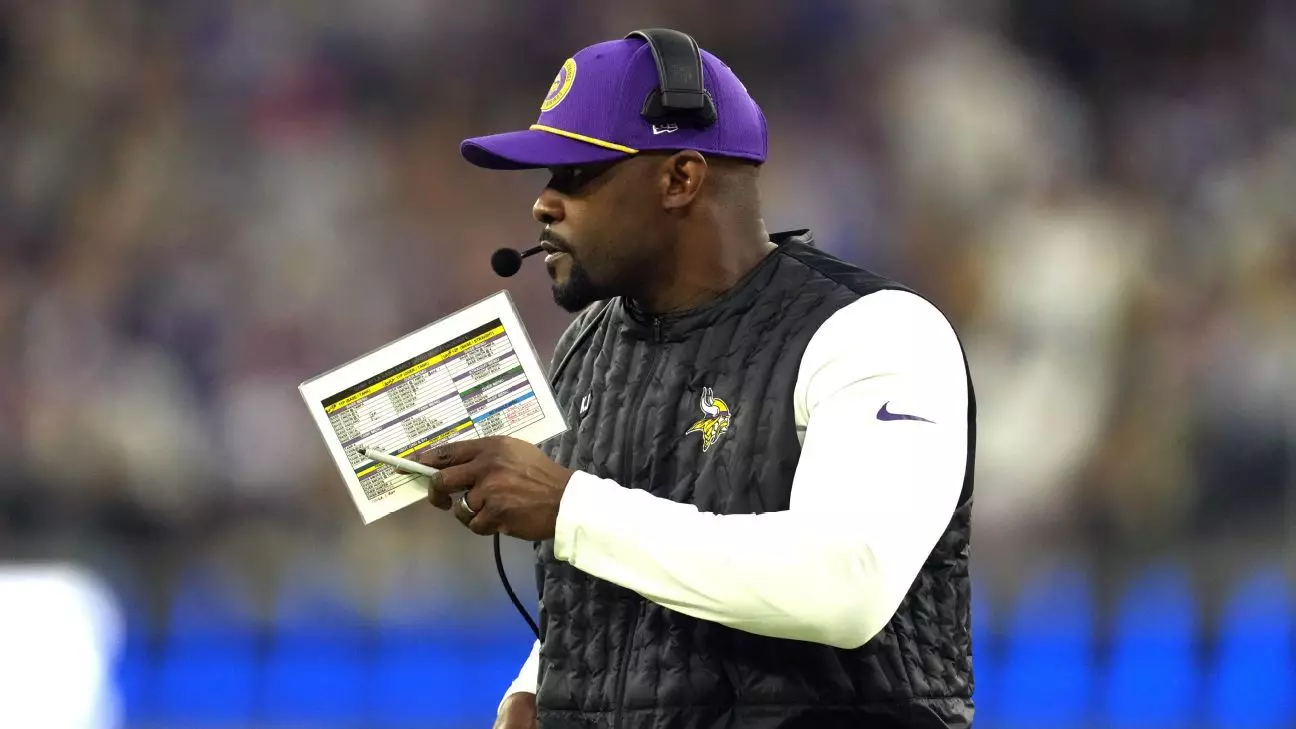The recent ruling by the 2nd U.S. Circuit Court of Appeals marks a significant inflection point in addressing longstanding racial disparities within the NFL. Traditionally, the league’s internal arbitration process has shielded itself from external scrutiny, effectively enabling a closed-door agenda that benefits its interests — often at the expense of truth and justice. The appellate court’s decision cracks open this opaque door, highlighting a fundamental flaw: the league’s arbitration clauses are more a mechanism of concealment than dispute resolution.
This judicial endorsement signals a seismic shift that challenges the NFL’s control over who mediates its internal conflicts. When a court criticizes a process as “arbitration in name only,” it underscores that the NFL’s current procedures do little more than perpetuate a facade of fairness while shielding those at the top from accountability. The ruling empowers victims of discrimination to pursue genuine justice in federal court, breaking the cycle of systemic cloaking that has long shielded discriminatory practices under the guise of arbitration.
The case of Brian Flores epitomizes this transformative moment. His courageous stance against the league’s alleged racial bias exposes the vulnerabilities embedded within the NFL’s operational framework. By standing firm and challenging the league’s arbitration process, Flores not only advances his personal fight but also paves the way for broader societal change — urging institutions to reexamine their models of justice and accountability.
Systemic Racism in the NFL: More Than Just an Allegation
Flores’s lawsuit unveiled stark realities about racial inequality in one of America’s most popular sports leagues. Despite Black athletes constituting the majority of players, their presence in positions of power remains disproportionately scarce. Coaches, scouts, and executive roles show a troubling underrepresentation of Black individuals, a disparity rooted in a history of systemic discrimination that the league has long tried to obscure.
Descriptions from Flores and other Black coaches reveal an environment riddled with bias, where opportunities are limited, and stereotypes often impede career progression. Their testimonies point toward a league that, while celebrating its diverse fan base, continues to operate according to a largely exclusionary political and cultural code. The league has historically prioritized compliance and image management over genuine inclusivity, perpetuating a cycle where conversations about racial justice are sidelined until legal action forces the issue into the spotlight.
The court’s recognition of these issues signals that mere lip service to diversity is insufficient. Institutional reform must go beyond token gestures, addressing the entrenched biases within the league’s recruitment, promotion, and evaluation processes. Flores’s case reminds the NFL — and all powerful sports institutions — that superficial efforts will not withstand judicial scrutiny once systemic inequality is laid bare.
The Broader Implications for Justice and Accountability
While the NFL’s legal battles are rooted in the specifics of its organizational policies, the implications ripple outward, touching on broader issues of workers’ rights, transparency, and social justice. If arbitrators are biased or serve as extensions of their employing institutions, then justice is effectively compromised. The appellate court’s decision underscores an essential principle: justice cannot be contingent on the interests of the powerful.
Flores’s steadfastness signifies the courage required to challenge deeply ingrained institutional norms. His willingness to risk his career reflects a moral conviction that systemic change is more vital than individual comfort. It sends a powerful message to other marginalized voices: resilience and persistence can push boundaries and force institutions to confront their own complicity.
Organizations seeking to maintain their image should interpret this development as a warning. Justice systems regarding workplace discrimination must be fair, transparent, and genuinely independent. Failing to do so not only perpetuates injustice but also risks public trust. The NFL’s ongoing dispute with the court suggests that true accountability remains elusive when institutions prioritize protecting themselves over addressing fundamental issues of fairness and equality.
The Road Ahead: Toward a More Equitable Future
This court decision does not spell the immediate end of NFL resistance, and the league’s response—calling for further review—reveals a continued reluctance to dismantle existing power structures. Nevertheless, it signifies an important step forward, emphasizing that systemic reform is possible and necessary.
As public awareness grows and legal precedents favor transparency, the league faces mounting pressure to overhaul its internal processes. Genuine change will require more than legal victories; it demands a cultural shift within the organization, embracing diversity not just rhetorically, but structurally. Increasing Black representation at coaching and executive levels is not optional but essential to healing the fractured landscape.
Flores’s lawsuit and this pivotal legal decision highlight that true progress involves confronting uncomfortable truths. It is a call to the NFL and other sports leagues to reevaluate their commitment to justice and equity. As history shows, societal movements often begin with a single courageous voice challenging the status quo—Flores’s stand may very well catalyze lasting change across professional sports and beyond.

